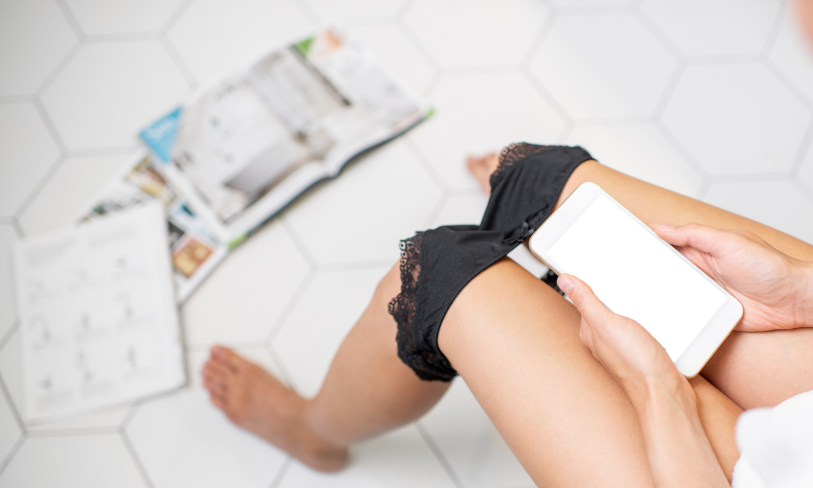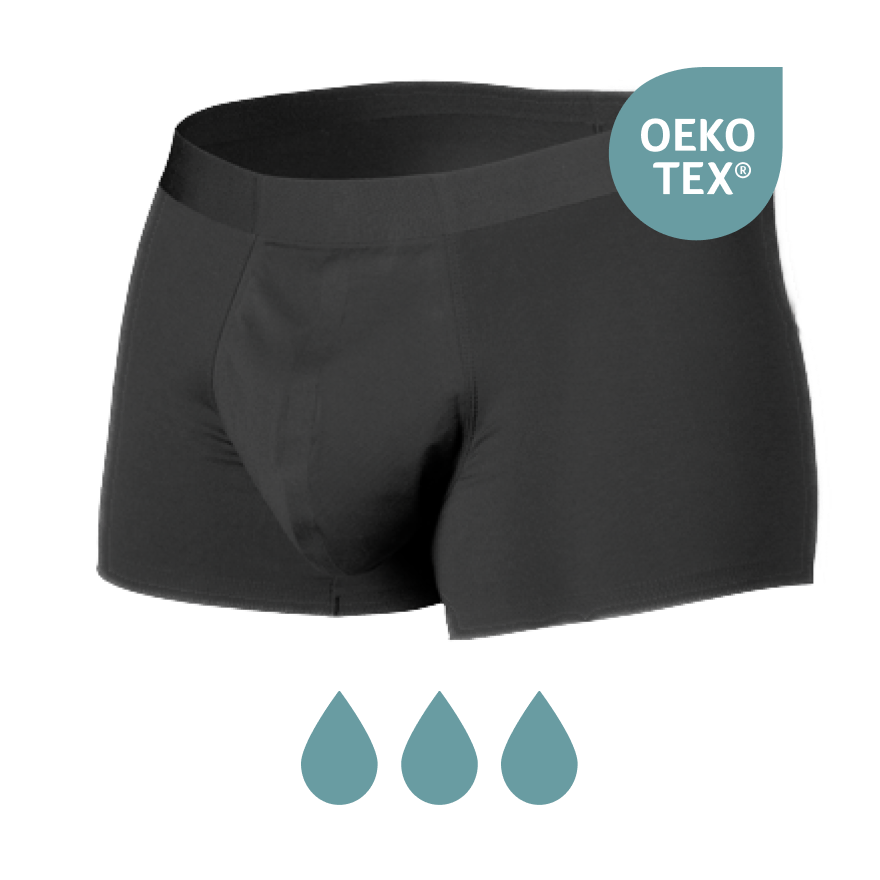Peeing or urinating is a normal part of life and helps the body to get rid of excess water and other waste. But if the urge to pee often strikes and you send to the toilet more often than before, it can stand in the way of your daily activities and sometimes become a source of shame. If you are in such a situation, it is important to understand what the underlying cause can be and when it is time to go to the doctor.
In this article we discuss some common causes of often urinating or urinating in women and we answer some frequently asked questions about managing your urine health.
What is often urinating or urinating?
Everyone has a unique urine schedule, but the consensus is that 6-8 times every 24 hours is normal for healthy people. If you have to pee more often for a longer period, this may indicate frequent peeing.
Although this condition does not always indicate an underlying medical problem and can prevent itself, consultation with your doctor about other accompanying symptoms, such as fever or a burning sensation, is crucial.
12 causes of often puddles
Various factors, such as age, living habits and medical conditions, can ensure that you have to go to the toilet too often. Although for some it can be a normal part of life (for example, pregnant women as a result of hormonal changes), other cases may indicate underlying health problems, which requires a treatment plan. Some common causes of frequent urination in women are:
1. A urinary tract infection (UTI)
Urinary tract infections (UTIs) are the most common cause of frequent urination in women. They usually occur when bacteria penetrate the urinary tract, which can happen during sexual activity or after a toilet visit without good hygiene. Symptoms of UTIs include
- Burning sensation when you pee
- Pain in your lower abdomen
- Increased urge and frequency of urination
If you notice one of these symptoms, it is important to go to your doctor immediately for advice, diagnosis and treatment.
2. Overactive bladder (OAB)
Overactive bladder (OAB) is another common cause of frequent puddles in women. It is characterized by an uncontrollable urge to pee, even if you don't feel like it, or the inability to keep peeing under control once you start. Although this condition is usually not serious, it can lead to other health complications if it remains untreated. Possible treatments for OAB are changes in the lifestyle, such as limiting caffeine use, bladder training exercises, medicines or, in more serious cases, surgery.
3. Pregnancy and postpartum
If the baby grows in you, your womb starts to push your bladder, so you have to go to the toilet more often. This symptom usually disappears after delivery, but you may need extra help, such as cone exercises or incontinence products.
4. Reduced estrogen
Many women often suffer from frequent urination, especially when they get older and come into the menopause. The estrogen content starts to fall during this period, so that the bladder muscles can become weaker and control the bladder decreases or peeing increases. Estrogen also ensures that the muscles of the urethra remain strong, so if the estrogen level drops, this can cause the urethra does not close properly. This can lead to you having to go to the toilet more often, even if you don't have the feeling that you have to.
Hormone replacement therapy (HRT) can supplement lost estrogen levels and help to better control the bladder. However, HRT is only suitable for some and must be discussed with your doctor based on individual needs and risk factors. Other treatments that can be effective are pelvic floor exercises that help reinforce the muscles around the bladder or medicines that relax the bladder muscle.
5. Drink too much moisture
Drinking enough water all day is good for your overall health, but drinking too much can lead to retaining water and contributing to problems such as bloating and frequent urination in women. Suppose you have problems often peeing as a result of too much drinking. In that case you can limit the intake to go to the toilet several times during the night or reduce your daily activities. You can also talk to your doctor because the condition can be the result of other underlying medical problems.
6. Use caffeine and alcohol
Frequent urination can be caused by consuming too much caffeine, alcohol or other moisture -wicking agents. Drinks such as coffee, tea and soft drinks contain different amounts of caffeine that can considerably increase the frequent urge to pee.
Alcohol and artificial sweeteners also work as diuretics, so that your body produces and excrete more urine than normal. Excessive use of these substances can cause discomfort or lead to dehydration due to excessive urination. You must therefore keep a close eye on the intake of these substances for optimum health and well -being.
7. Vaginitis
Vaginitis is a common and often uncomfortable condition caused by inflammation in the vagina or vulva that can be caused by an infection. Symptoms of vaginitis are pain in the genitals, often peeing with a burning or itchy feeling during urinating and unusual vaginal discharge - usually white and thick with an unpleasant odor and frothy texture.
8. Interstitial cystitis (IC)
Interstitial (IC) occurs when the muscles get irritated in and around your bladder. Although the precise cause is unknown, it is more common in women than in men with different intensity of symptoms, including pressure in the lower abdomen, often have to pee and small amounts of urine that are excreted every time you go peeing - even if you feel the feeling Have your bladder afterwards still full. You can also experience chronic pain or discomfort in the pelvic area.
9. Bladder stones
Just like kidney stones, bladder stones often form when minerals come together in the urine and solidify. Although bladder stones occur more often in men, women can also suffer from it. If you regularly go to the toilet with a burning feeling or discomfort in your stomach while urinating, this may indicate that you have bladder stones.
10. Stress and fear
Unexpected trips to the toilet can indicate underlying stress. Research suggests that frequent urination can be the natural reaction of your body when it feels threatened by pent -up nervousness or worries from daily life. By actively taking steps to relieve such fears, you can reduce this uncomfortable symptom and ensure general well -being.
11. Weak pelvic floor muscles
The pelvic floor muscles Are an essential part of the urinary system, because they support different organs, including your bladder. Unfortunately, delivery and aging can weaken these vital muscles. If this happens, this can lead to more often pee. If you suspect your pelvic floor muscles are weakened, it is wise to consult a general practitioner or gynecologist for a diagnosis and recommendations for treatment options.
12. Diabetes
Diabetes is a state of health where your body cannot properly regulate the sugar level. This can lead to frequent urination because the body desperately tries to get rid of surplus sugars. Other symptoms of diabetes are fatigue, extreme thirst or hunger, dry mouth and tingling hands/feet.
When should you go to the doctor?
If your frequent toilet visit influences daily life, you can keep an eye on the amount of water you take and slow down the use of diuretics. If the condition persists, it is wise to consult a doctor. There are various factors that can cause frequent urination, so a conversation with a doctor is important to determine the cause for an accurate diagnosis.
Treatments for often peeing
Peeing often can be kept under control and stopped with the right treatment and home remedies. If the condition develops into urine incontinence, you can use incontinence material from a reputable source to increase your comfort and safety while waiting for the treatment and other remedies to have an effect. Some of the best home remedies that increase the chance of healing are the following:
- Limit or avoid taking water and other liquids before going to sleep
- Limit the consumption of alcohol, artificial sweeteners, caffeine and other sour foods
- Try pelvic floor exercises such as cones to strengthen your pelvic muscles
- Practicing bladder training techniques, such as puddles at fixed intervals
- You can also consult your doctor to determine what this problem can cause and how you can best treat it. Treatment options can vary from antibiotics in cases such as UTI or other medication depending on the disorder - regular follow -up with your doctor is advisable to check the progress until the symptoms are reduced.
















